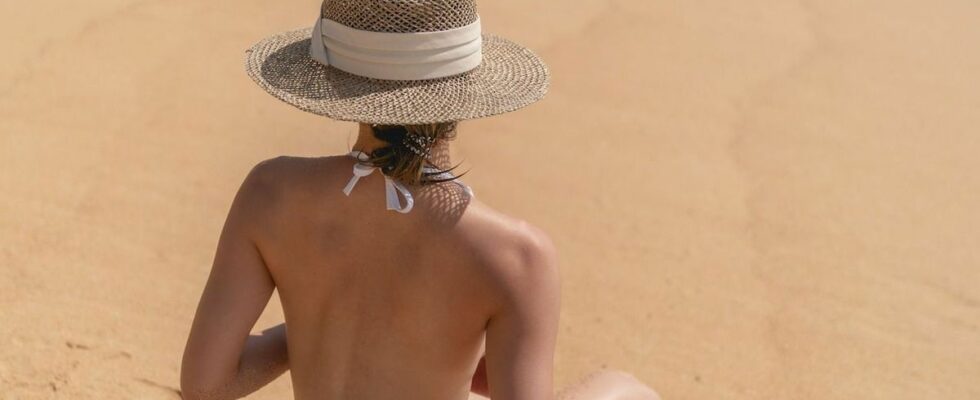Published on
Updated
Reading 3 min.
On Tiktok, influencers are saying it loud and clear: topless and sun don’t mix. What should we think about this? Should we fear breast cancer? Answer.
On Tiktok, you recently read that going topless increases your risk of breast cancer? A totally unfounded rumor, according to several experts.
Breasts no more fragile when exposed to the sun
Is sunbathing by the pool more harmful to the breasts than to the rest of the body? No, says Dr. Christelle Comte, a dermatologist attached to the Saint Louis Hospital in skin cancerology. The real risk factors for breast cancer are alcohol and tobacco consumption, being overweight, little or no physical activity, family history or even certain hormonal treatments. But in no case is the sun the cause.
“Over the past 30 years, 30 cases of basal cell carcinoma, the most common skin cancer, have been reported worldwide on the nipple. This represents an average of one case per year,” the specialist confirmed to us in a previous interview.
No more risk of breast cancer
Breast skin is therefore not more fragile or more prone to skin cancer in the event of exposure. But could there be a risk of breast cancer ?
For his part, Dr Pierre Kouchner, gynecological and cancer surgeon, told our colleagues that 20 minutes “that, based on current knowledge, exposure of the breast to UV rays is not a risk factor for breast cancer“.
Fact confirmed by her colleague:
“I have no studies that show that it would strictly speaking increase the risk of breast cancer.“, reveals Myriam Deloménie, cancer surgeon at the French Breast Institute and the American Hospital of Paris.
So where does this misconception come from? If many TikTokers announce that the sun can cause breast cancer, it is surely because they associate the latter with skin cancer.
The chest should be protected just like other areas of the body.
The chest, like other areas of the body (the neckline, back, shoulders, calves, eye area, etc.) is sensitive to UV rays, especially because it is covered all year round. It therefore deserves to be perfectly protected.
Areas most affected by skin cancer:
• The neckline; • The back; • The shoulders; • The calves; • The scalp and top of the skull (in men); • The area around the eyes; • The face; • The bridge of the nose; • The lobe and back of the ears; • The edge of the hair.
Areas that are sometimes neglected when applying sunscreen. Protect them as a priority.
Although the chest is a sensitive area that deserves to be protected from the rays, it remains less at risk of skin cancer than certain other parts of the body.
“In terms of probability, there is less risk of developing skin cancer on the breast because it is less exposed”explains Myriam Deloménie.We are more likely to develop one on areas like the face. But the chest is a more fragile area so we will get more sunburns..”
As with the rest of the face, poorly adapted protection or no protection at all leads to risks of skin photo-aging, brown spots and skin cancer. We therefore choose a sun protection with a high factor and apply it regularly and in sufficient quantity.
What about little topless girls on the beach?
It is not uncommon to see little girls at the seaside without a swimsuit top. For Dr. Comte, the question of risk is not linked to having breasts or not, children should not be exposed to the sun. They should, as far as possible, wear a t-shirt, a children’s sunscreen SPF 50+ and a hatand should never stay in the sun between 12 p.m. and 4 p.m. Sunburn during childhood increases the risk of skin cancer in adulthood, regardless of the area.
Caution should also be exercised by women who have had breast cancer and radiotherapy: irradiated skin is more sensitive and vulnerable to damage caused by UV rays. They should limit their exposure, use protective clothing and (ab)use sunscreens.
